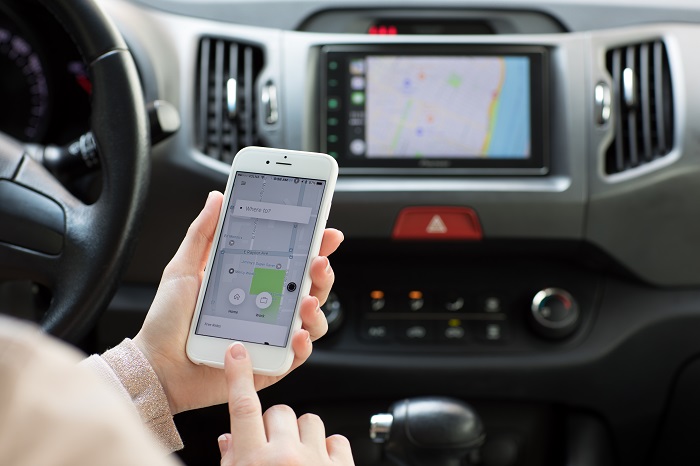By Matthew Medsger
Boston Herald
(Boston Herald) — In defense of their long-standing business model, lawyers for Uber and Lyft say their methods are better equated to those of the travel agent than the cruise line.
The companies do not own vehicle fleets, just as a travel agent doesn’t own the ships they arrange passage on, and rideshare apps are not transportations agencies, but the bridge between a person willing to drive and a person that needs to get somewhere.
At least, that’s what lawyers for the companies told Superior Court Judge Peter Krupp on Monday when a long-awaited trial in Boston to determine whether they and others like them employ their workers or merely contract with them got underway.
The distinction is at the center of a four-year old case that comes after then-Attorney General Maura Healey sued the companies, alleging that for years they have ducked the responsibilities mandated for employers by Massachusetts labor and employment laws.
headlines economy news
“Uber and Lyft have built their billion-dollar businesses while denying their drivers basic employee protections and benefits for years,” Healey, now the governor, said when she brought the suit in 2020.
“This business model is unfair and exploitative. We are seeking this determination from the court because these drivers have a right to be treated fairly,” she said.
The companies maintain that their current, independent contractor relationship with drivers allows the vehicle owners to be in control of their engagement — deciding when they work, how often, and for how much — in a way that isn’t available in a classic employer-employee arrangement.
The rideshare apps, their lawyers said, facilitate a transaction between someone selling a service — the driver — and the person buying it — a rider or someone waiting at home for delivery. Uber and Lyft don’t actually perform the service or dictate its exact terms, the attorneys said.
headlines economy news
Speaking on behalf of Uber’s legal team, attorney Michele Maryott explained that “a travel agent isn’t a provider of transportation.”
“A travel agent is an intermediary between those who want a service and those who have a service to provide,” she told the judge, just like her client.
Arguing on behalf of the commonwealth, lawyers from the Attorney General’s Office said that drivers are given little control over how much they are compensated, how they are rated by customers and the company, and have almost no recourse should a rideshare app decide to deactivate their accounts.
(Please click onto the image of the cat to hear Oldies & Classic Rock)

They are, according to the AG’s interpretation of the law, employees of Uber and Lyft and entitled to the protections that come with that status.
The exact nature of the driver-rideshare app relationship is also the subject of several initiative petitions, with proponents on either side hoping to enshrine their views on the matter into state law via a voter-decided ballot question.
headlines economy news
Massachusetts AFL-CIO President Chrissy Lynch said the rideshare companies know they will lose the lawsuit now overseen by Attorney General Andrea Campbell, which explains their efforts to change the state’s employment laws.
“Uber and Lyft refuse to play by the same rules as everyone else, in fact their entire business model is predicated on violating existing laws as long as they can until they are called out, and then instead of following the law, they spend millions to try to buy themselves loopholes to the laws,” Lynch said.
“They know, based on Massachusetts’ law, that they are more than likely to lose this lawsuit. What is their cynical answer? Abuse our ballot initiative process to buy themselves a new law that lets them continue to deny workers basic rights and benefits, deny consumers basic protections, and deny the Commonwealth tens of millions in needed revenues,” she said.
If Uber and Lyft, and other companies like DoorDash and Grubhub, are classified as employers under state law, they could be on the hook for many years of back taxes.
At a legislative hearing over the matter in March, First Assistant Attorney General Pat Moore told lawmakers that the state intends to go after that money, if the status quo is up-ended.
“Should there be a declaration that the drivers are employees, (employee) benefits should have accrued to the drivers going back as far as the law will allow us with attendant penalties. The numbers associated with those are quite large, and it will be the commonwealth’s intent, with the AG acting on its behalf, to recover those,” he said.
©2024 MediaNews Group, Inc. Visit at bostonherald.com. Distributed by Tribune Content Agency, LLC.
headlines economy news


